March 2025
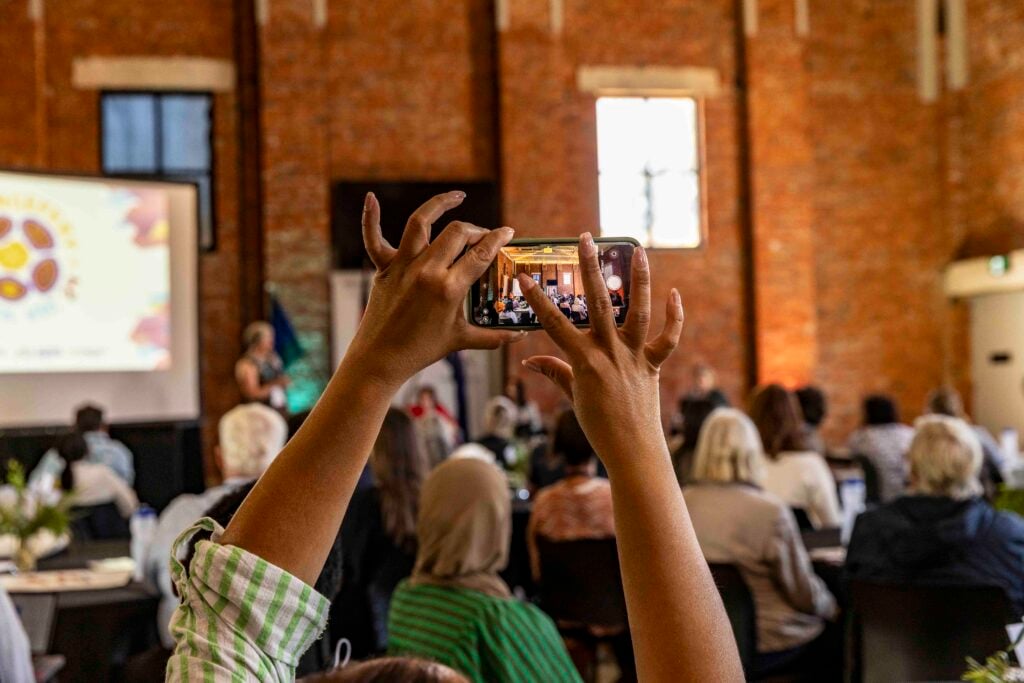
Photo Credit: Jillian Mundy and ChangeFest
“Co-creating brave and safe space for us together: both for ChangeFest, but also as a microcosm of broader systems.” CF24 Advisory Group Member
ChangeFest Gatherings are in many ways a glimpse into what our country could feel like if we collaborate across our differences, centre community voices, and importantly centre First Nations leadership. It is not perfect and never will be.
As the National Convenor of ChangeFest, CFI’s Anna Powell (CEO) and Laura Barnes (ChangeFest Backbone) reflect on the findings of a recent evaluation of ChangeFest (available here). They seek to make sense of what we have seen, heard and experienced; what it means for the Movement; and what it tells us about the change required at multiple levels of the eco-system. Four themes emerged:
ChangeFest Gatherings are in many ways a glimpse into what our country could feel like if we collaborate across our differences, centre community voices, and importantly centre First Nations leadership. It is not perfect and never will be.
Our country is learning how to enact social change differently – and ChangeFest is just a fractal of this. It mirrors many of the patterns in the social change field and in our communities, at the same time as creating spaces that demonstrate equitable and collaborative ways of creating communities where all people thrive.
In this context, the findings of the ChangeFest24 Evaluation of the annual gathering held on Latji Latji Country, reflect this wider national context of Australia and many of the dynamics we see in place-based collaboration.
As the National Convenor for ChangeFest, we seek to make sense of what we have seen, heard and experienced, what it means for the ChangeFest Movement and more broadly, what it tells us about the change required at multiple levels of the eco-system.
Across Australia, local communities and initiatives are seeking to work across cultures and to share power and decision making. We see these efforts occurring in the absence of national structures, and overwhelmingly state structures, for First Nations self-determination, leadership and voice. This leaves each local effort to find their own path – with some successes and learnings.
At the same time, there is the additional challenge of building and adapting structures and approaches that not only serve as governance for transformational change, but also provide the transparency and accountability required to support the delivery of services and activities.
These are shared challenges that we see across the movement, across Australia – and ChangeFest is no different.
The goal for the ChangeFest Movement is to create a container for governance and strategy that can hold both the structural shifts in power, relational work of shifting our own systems, and the technical aspects of event organising – that is, a container in which:
It is in this frame that we are continuing to strengthen our governance and strategy with a new governance structure.
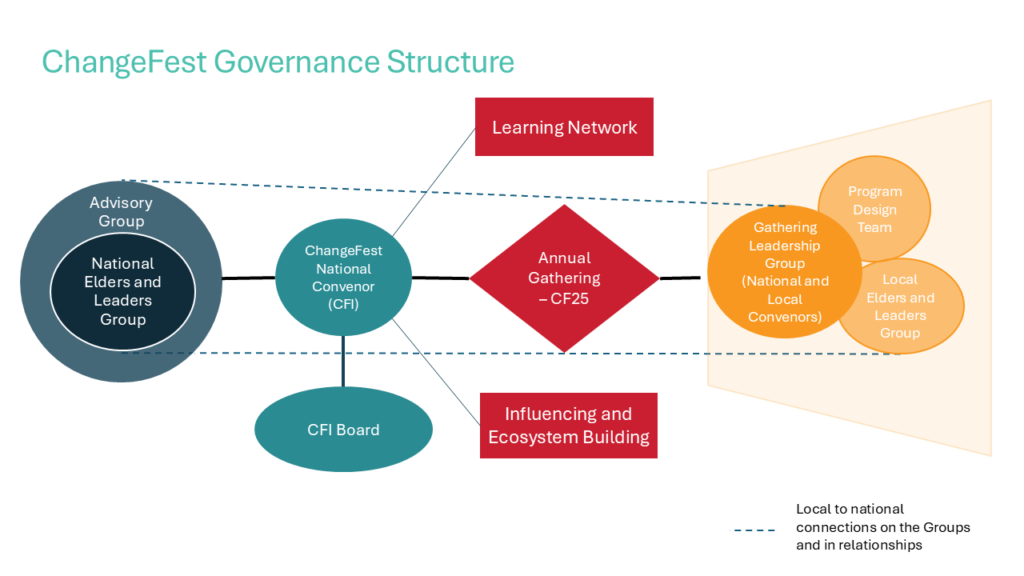
In our governance, the role of the Elders and Leaders Group is being formalised and the ChangeFest Principles (as taken from the ChangeFest Statement) guide the work.
The new ChangeFest Advisory Group builds on what worked well in the 2024 pilot that had value both for strategic guidance of the Gathering and as a space for open and honest conversations for learning, problem solving, and sharing across the diverse perspectives of the Movement.
Local governance is connected to the national perspectives and together we are developing a shared understanding of the roles and accountabilities in a way that balances the perspectives of the movement and the needs of the local community. This is informing the continuing development of standard operating procedures, templates and tools to further streamline the operations of the Gathering.
We are focused on building engagement with interested members of the Movement and sharing our learnings across the Movement as we continue to deepen our governance approaches.
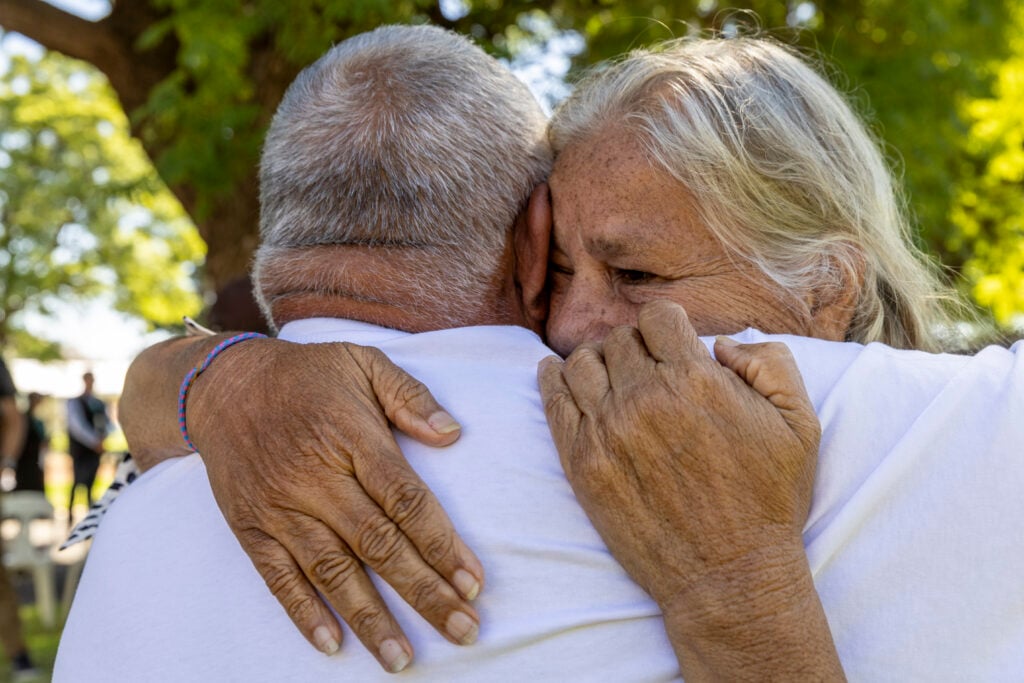
Photo Credit: Jillian Mundy and ChangeFest
Community led systems change is relational work. It is through understanding, strengthening and changing the relationships between the parts of the system that systems themselves can be changed. This is deep and resource intensive work.
The challenges of balancing this with the technical delivery of activities is a very real challenge experienced by community led systems change efforts across the movement – and we see this reflected in ChangeFest, particularly in the delivery of the Gathering.
For ChangeFest24, building on previous years, our program curation approach focussed on the relationships and the partnership, taking time to convene the partners, build shared understanding and bringing together the diverse perspectives across the national movement and local leadership. This included:
Prioritising the collaborative design meant less capacity and a shorter runway for other technical elements of programming and content including:
There is an ongoing conversation in our partnership and our work – have we got the balance right? What are the impacts of our decisions about where and how to invest our time and our money? What have we learnt from the decisions we have made?
Each year we have sought to find the balance, and as we move into planning for CF25 and beyond, we will continue this work, seeking to be clearer each time about roles, how we hold different types of risk and accountabilities, what have authority to make decision on and about building a space in which we can reflect and learn and adapt as we go.
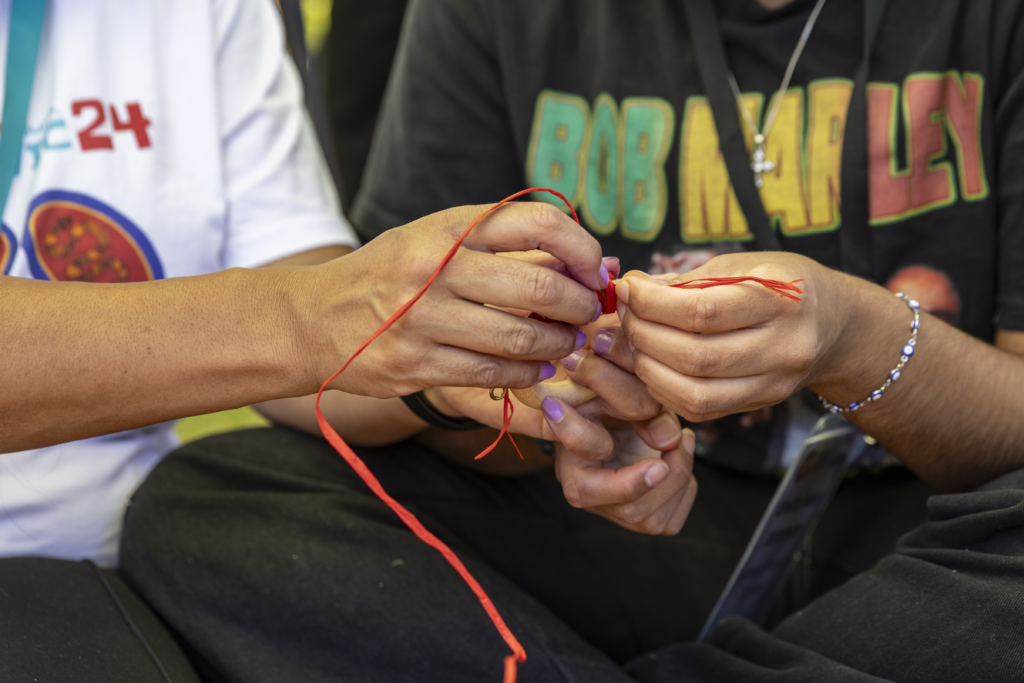
Photo Credit: Jillian Mundy and ChangeFest
The collaborative work that sits at the heart of movement building for systems change – in communities and nationally – is resource intensive. The structural and relational work – like network building, governance, strategy and power-shifting collaboration – is often the invisible glue that is difficult to secure adequate funding for.
For the most part, funders will support the more tangible and technical aspects of delivery, but will not support the relational work of building scaffolding for scaling networks and movements deep and wide.
And again, ChangeFest is no different. Since the first gathering in 2018, ChangeFest has existed on year-by-year funding and required significant in-kind contributions from national and local convening partners. In the case of CFI, as a not for profit organisation, it has also meant both financial contributions generated from our social enterprise arm and knowing that if this does not extend far enough, the organisation will carry the shortfall each year. This was recognised in the Five Year Review, which also noted that the shift from an annual event to movement building will require fit-for-purpose, multi-year resourcing strategy to support the additional activity.
Building purpose aligned, multi-year funding arrangements – this is critical now for providing the support for the Movement to grow beyond the annual Gathering. However, as noted in the CF24 evaluation, more work is required to create a resourcing model that reflects both:
We recognise that at times we have not been upfront enough about the financial risks we have held as CFI in keeping ChangeFest live in these early formative stages. This has resulted in a mismatch between available resources and expectations of partners. A couple of times this has had unintended impact on our relationship with local partners. We now make sure that in the mutual selection process for host communities, the financial accountabilities of CFI and funding constraints are well understood by all before we enter into decision making.
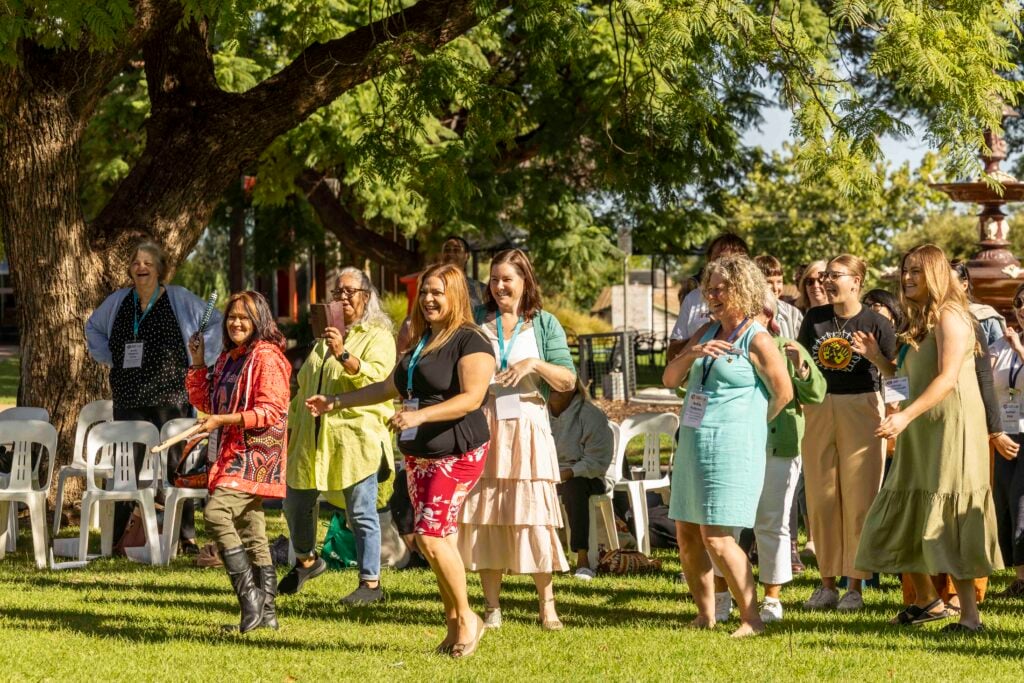
Photo Credit: Jillian Mundy and ChangeFest
Finally, as humans working in complexity, we all have tendency to want to reduce the confusion, to find simplicity in the complexity.
This can play out as a tendency to place expectations on a single activity to achieve a range of results. Working in complexity means it is unlikely that this will occur and instead there is a need for the range of ‘safe to fail experiments’ in which we can all learn. Learn, not because we don’t know what we are doing, but because the multiple impacts of our efforts are unknown in a complex system.
The ChangeFest Gathering has been very successful in bringing our movement to life and helping to create an ecosystem in which significant investment in place-based change is now a reality. However, the annual event has been our only activity and as such has had to stretch across a number of outcomes – such as celebration, learning, connection, collaborative action, influencing. The work is now on positioning the ChangeFest Gathering at the centre of a range of movement building activities, such as the Learning Network, influencing agenda, online connectivity and also the supporting infrastructure of the next iteration of governance, communications and engagement, that together help us all see hints of ways forward, that teach us about how the system might react, that guide us to the next wise steps.
This desire for simplicity also plays out as a tendency to create the binary, a polarisation that allows for easy identification and categorisation. In the field of community led systems change, this often plays out as ‘community or other’ or ‘community or national’. While this may absolutely feel like the reality for many – to shift the systems that hold inequity in place it is likely that we need to each be able to articulate the multiple roles we each play, all the perspectives we bring, and find a way to work together.
Which brings us back to the top of this reflection – and the place of the middle way. As the Barkly Community Researchers shared with us in our second Learning Network event – the middle way is the bringing together of wisdom, knowledge and understanding from different perspectives to achieve common goals. This means it’s more like ‘community And’ or ‘community + collaborators’. Importantly it is only with truth-telling, deep listening and respect, having taken the time to understand the place, the people, the perspectives, that we can find this Middle Way together.
We have deep gratitude for the people who came together to create ChangeFest24 – the local hosts, Hands Up Mallee and Connected Beginnings Mildura and the local Elders; the ChangeFest Elders and the Advisory Group; all the folk who made the journey to Latji Latji country; to the many folk who have joined us for our Learning Network events; and to Clear Horizon for their evaluation wisdom. This was also built on the connecting songlines created by the hundreds of people who co-created the annual gatherings in the years before.
And we have hopeful anticipation for those who will come together in the future to continue to grow the movement of communities for change across Australia.
And so, across 2025 (and beyond) we hope that you will step up; step in; and join the ongoing movement for community led systems change. Through the ChangeFest Learning Network events people are now coming together monthly to connect and learn; through the annual Gathering we will celebrate, reflect, and renew; through our governance we will strengthen shared decision making and learning and through it all, together we will continue to build a better, more inclusive futures with our communities.
Learn more about ChangeFest here.
Back to all